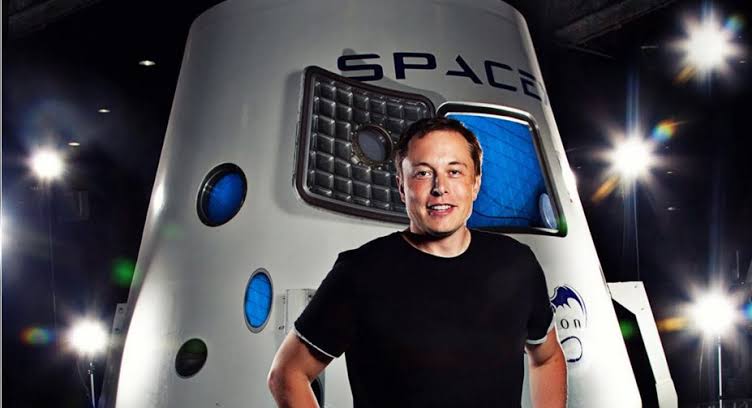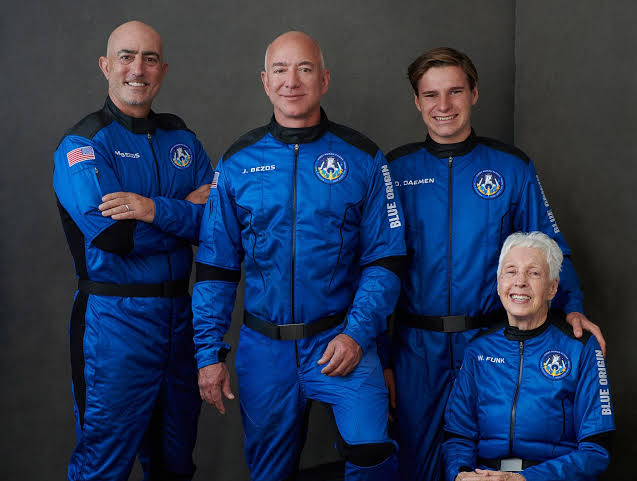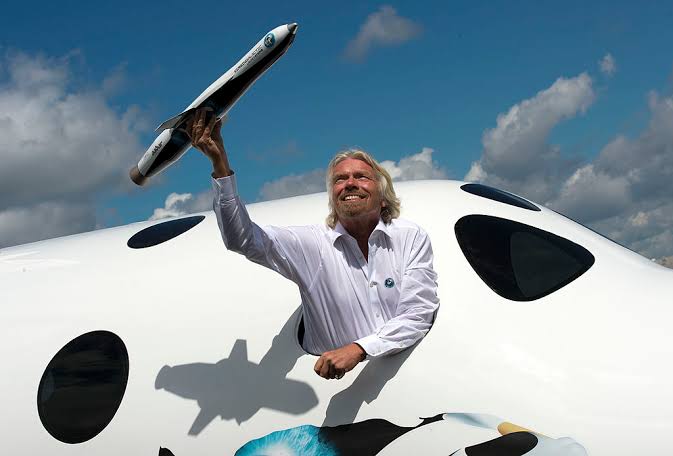We are currently in the midst of a modern-day space race. Where once the world’s two most powerful empires competed to be the first to the moon, we now have corporations led by billionaire barons — Elon Musk’s SpaceX, Jeff Bezos’ Blue Origin, and Sir Richard Branson’s Virgin Galactic — boasting an exo-planetary tourism future. In 2021, the leaders of these private companies delivered on their numerous promises, successfully launching civilians, astronauts, and, in two cases, themselves into the uppermost reaches of Earth’s atmosphere.
SpaceX remains at the forefront of the burgeoning private spaceflight industry. The company successfully launched its first “rideshare mission” aboard its Falcon 9 rocket in January, ferrying 133 microsatellites into orbit alongside 10 of its own Starlink satellites. Despite the vehement protests of astronomers who fear their presence will blind ground-based telescopes, SpaceX’s Starlink ISP service, which now serves more than 10,000 customers, has put some 1,475 of the microsats into orbit above the planet (with a total of 42,000 planned, offering global coverage by September).

To be sure, SpaceX’s efforts to get its Starship prototype off the ground have not been nearly as successful as Starlink’s. The 100-passenger spacecraft, which was designed to help CEO Elon Musk realize his dream of colonizing Mars and, presumably, naming himself God Emperor of the Red Planet (or something along those lines), exploded spectacularly on the launchpad following a high-altitude test flight in March.
SN10 engine was low on thrust due (probably) to partial helium ingestion from fuel header tank. Impact of 10m/s crushed legs & part of skirt. Multiple fixes in work for SN11.
— Elon Musk (@elonmusk) March 9, 2021
Later that month, a subsequent test of the SN11 Starship prototype failed to return to the landing pad. The SN15, which launched in May, did, however, land in one piece. The company is currently working on a plan to launch a Starship prototype into orbit, though no timetable for that launch has been set — it was originally scheduled for July, then pushed back to November, depending on regulatory approval, and is now scheduled for January.
Those failed tests, however, have had little effect on SpaceX’s dominance over its competitors. NASA awarded SpaceX a $331.8 million contract in February to launch its Gateway station into lunar orbit in 2024. In addition, NASA awarded the company a $2.9 billion contract in April to transport its Artemis lunar lander to the moon.
Jeff Bezos and Blue Origin responded to the Artemis contract by first protesting the “fundamentally unfair” decision with the US Government Accountability Office (GAO), which stalled progress on the project until July, when the GAO dismissed the claims, despite Bezos’ offer of $2 billion to NASA to grant them the contract instead.

“We remain convinced that there were fundamental flaws in NASA’s decision, but the GAO was unable to address them due to their limited jurisdiction,” the company stated following the GAO’s announcement.
Still enraged by the GAO’s rebuke, Bezos filed a lawsuit against NASA in Federal Claims court, attempting to “sue [its] way to the moon,” as Musk put it. A spokesperson for Blue Origin told Engadget in August that this was done “in an attempt to remedy the flaws in the acquisition process found in NASA’s Human Landing System.” “We are adamant that the issues identified in this procurement and its outcomes be addressed in order to restore fairness, create competition, and ensure America’s safe return to the Moon.” Blue Origin was eventually defeated in that lawsuit as well.
And that’s when a prestige battle between the two richest men on the planet descended into a middle school slap fight, with SpaceX accusing Amazon of purposefully delaying proposals for its Starlink service, while Amazon reacted with accusations that Musk and SpaceX “don’t follow the rules.”
“Whether it’s launching satellites with unlicensed antennas, launching rockets without approval, constructing an unapproved launch tower, or re-opening a factory in violation of a shelter-in-place order, the conduct of SpaceX and other Musk-led companies makes their point clear: rules are for other people, and those who insist on or even simply request compliance are deserving of derision and ad hominem attacks,” Amazon’s FCC filing reads.
Not only did SpaceX become the first private company to successfully transport astronauts to the ISS this year, but it also launched its first civilian orbital flight in September with the Inspiration4 mission. A group of four amateur astronauts spent three days in a Dragon capsule circling the Earth before safely returning. While Musk has not yet left the planet’s atmosphere in a rocket designed by his company, he has reportedly paid a $10,000 deposit on a trip aboard a future Virgin Galactic flight.
READ ALSO: Billionaire Elon Musk ‘Thinking of Quitting’ His Jobs to Become an Influencer
Looking ahead, Blue Origin is developing a spacecraft for DARPA that will be capable of handling a nuclear thermal propulsion (NTP) system, and it will compete with Lockheed Martin to successfully demonstrate it outside of low Earth orbit in 2025. The company also announced at the end of October that it hopes to build and deploy the Orbital Reef, a commercial space station similar to the ISS but with more intrusive advertising, by the second half of this decade. As part of its Commercial LEO Development program, NASA has since awarded the project a Space Act Agreement, as well as funding for the design phase.
Virgin Galactic, on the other hand, began its 2021 with a pause. The SpaceShip II test, which was the company’s first major flight out of the Spaceport America site in New Mexico, ended abruptly at the end of last December when the ship’s engine failed to ignite. A follow-up redo test scheduled for February was also pushed back to May after the company decided to conduct additional “technical checks.”

While these aren’t major setbacks in the same way that an exploding StarShip would be, VG’s ongoing delays have pushed the company’s goal of commercial space tourism flights to at least 2022. They had no effect, however, on Virgin Galactic’s March unveiling of SpaceShip III.
VG’s perseverance paid off in May, when SpaceShip II successfully completed its rocket-powered test flight, launching two pilots and a cargo hold full of NASA experiments into the very upper reaches of the atmosphere. The FAA granted Virgin Galactic permission to begin commercial operations the following month, making the company the first of its kind to do so. With the FAA’s approval in hand, Virgin Galactic decided to launch CEO Sir Richard Branson into space the following month, ignoring Blue Origin’s mockery. Branson and his crew did just that on July 11th — technically.
Encouraged by the success of their boss’ voyage, Virgin Galactic began selling tickets to would-be space passengers for the low, low price of $450,000. More than 100 tickets had been sold as of the beginning of November.
However, Branson’s flight was not without flaws, which enraged the FAA. According to the FAA, SpaceShip II “deviated from its Air Traffic Control clearance as it returned to Spaceport America” during its landing. Virgin later issued a statement in which it disagreed with the FAA’s assessment.
“When the spacecraft encountered high altitude winds that modified the trajectory, the pilots and systems checked the trajectory to ensure it remained within mission constraints,” the corporation claimed. “Our pilots responded to changing flight conditions exactly as they had been trained and in strict accordance with our established procedures.” Although the flight’s final trajectory deviated from our original plan, it was a controlled and intentional flight path that allowed Unity 22 to reach space and safely land at our Spaceport in New Mexico. The passengers and crew were never in danger as a result of the change in course.” The FAA cleared the company to resume test flights after a brief investigation.
Despite advancements in private spaceflight systems, the space tourism industry is unlikely to take off until at least the beginning of the next decade. If Virgin Galactic’s recent price increase from $250,000 to $450,000 per ticket is any indication, only a small number of people will be able to afford such a trip in the near future. So, while two of the world’s wealthiest men may have had the distinction of momentarily escaping our gravity well, don’t expect to get your chance very soon – unless you can win it like a Golden Ticket, as Keisha S did.
READ ALSO: Reason Tom Hanks turned down Jeff Bezos’ offer to go to space REVEALED!
